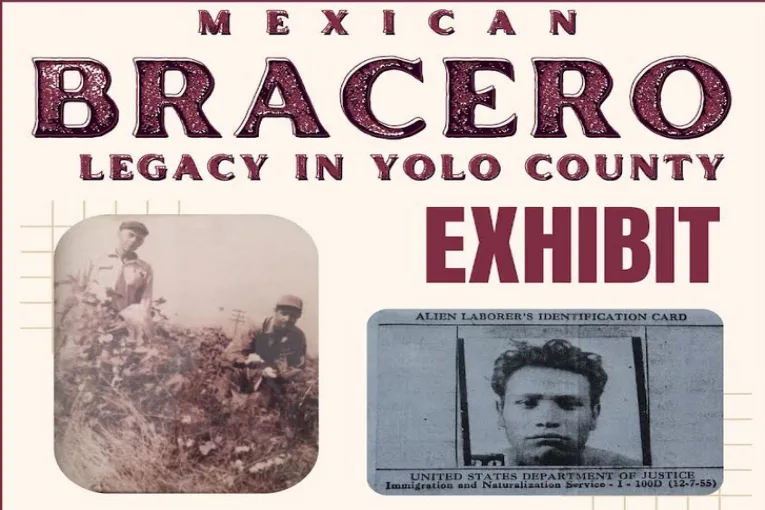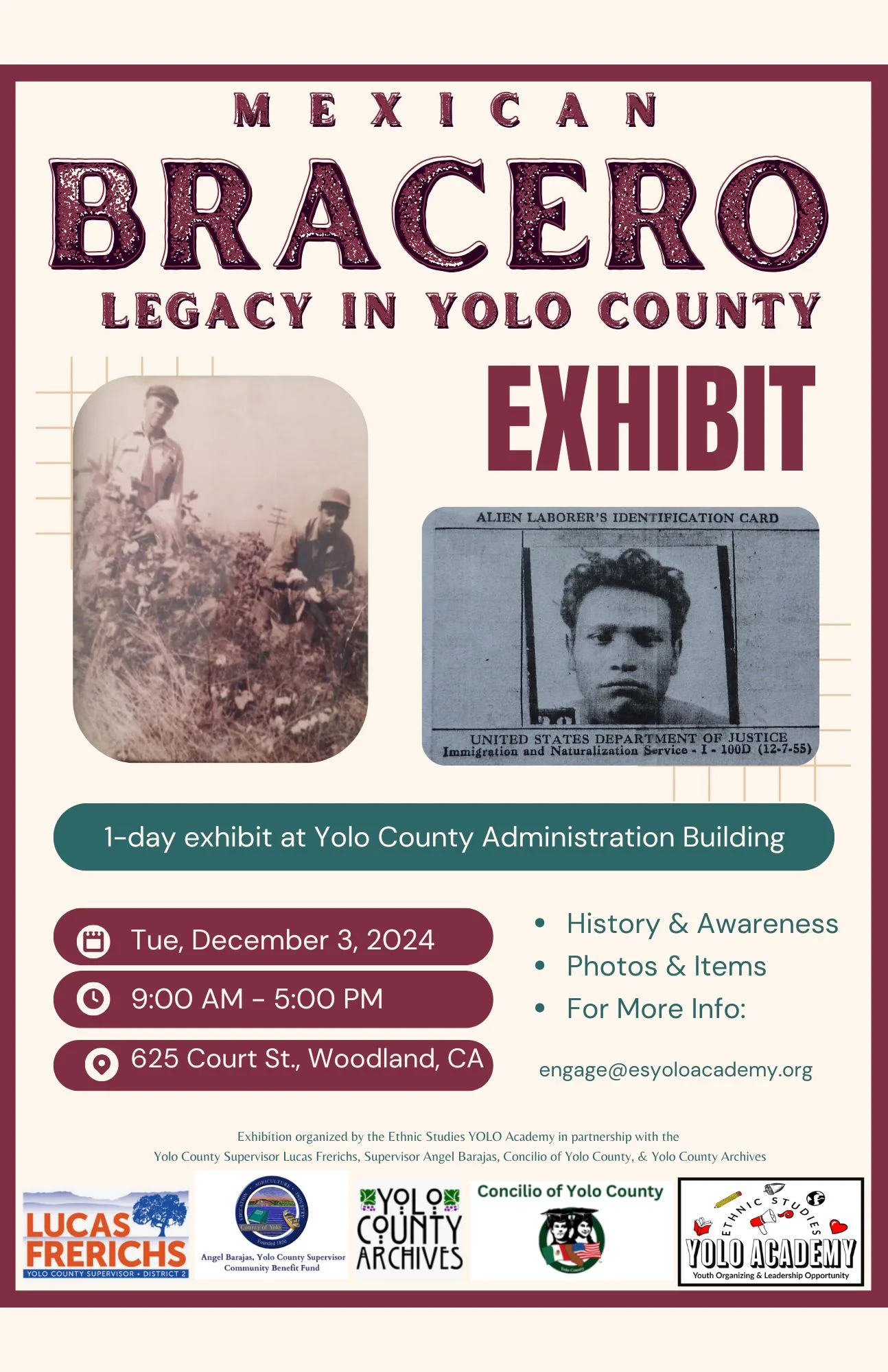
Woodland, CA – At the Yolo County Board of Supervisors meeting on December 3, the Board will consider a resolution recognizing the Bracero Guest Worker Legacy and Descendants in Yolo County. Simultaneously, the Mexican Bracero Legacy in Yolo County Exhibit will be displayed in the Yolo County Administration Building lobby, 625 Court Street Suite 202 in Woodland from 9:00 a.m. to 5:00 p.m. It will include photos, items, and information to raise awareness about this historical legacy. It is organized by the Ethnic Studies YOLO Academy in partnership with Supervisor Lucas Frerichs, Supervisor Angel Barajas, the Mexican Yolo Concilio, and the Yolo County Archives.
“I’m grateful for the opportunity to raise awareness about the history of the Bracero program in Yolo County,” said Yolo County Board of Supervisors Chair Lucas Frerichs. “It’s important to reflect on both the good and harmful actions of our shared history so we don’t repeat injustices of the past. We invite members of the public to view the Mexican Bracero Legacy in Yolo County Exhibit on December 3, outside of the Board of Supervisors Chambers.”
On December 31, 1964, Public Law 78 officially ended the Bracero Program in Yolo County and the U.S. The program, which brought Mexican male workers to sustain the U.S. economy from 1942 to 1964, began during World War II when Japanese American workers were detained. Initially, recruits came from Mexico City and later from rural areas like Michoacán. Braceros were sprayed with Dichloro-diphenyl-trichloroethane (DDT) and sent to a distribution center in Stockton, California, where they worked in agriculture, food processing, and railroads. Yolo County hosted many Braceros, contributing to large-scale agriculture while at the same time University of California, Davis expanded its agricultural research.
The Bracero program offered economic opportunities but caused significant family separation, with many workers away from their families for extended periods. Due to labor surpluses, Braceros faced unfair pay, mistreatment, and conflicts with U.S.-born workers. In addition, some wages were withheld. The 1955 Operation Wetback policy led to mass deportations of Mexican men. In the 1960s, Cesar Chavez and Dr. Ernesto Galarza pushed to end the program, believing it hindered Mexican American civil rights. After the program ended in 1964, some Braceros stayed with expired permits, later applying for residency in the 1980s. Some formed new families in the U.S., while others kept families in Mexico, leading to strained relationships. Some Braceros became active members of their local U.S. or Mexican communities.
In Yolo County, Amelia Veldenegro recalls learning that her grandfather, former Bracero Emilio Zavala lived in Davis while working in Yolo County as a Bracero. Another former Bracero, Crescencio Acevedo Soriano, who was born in 1922, relocated to Woodland right after his Bracero term ended. He lived in Woodland until he was 101 years old and died early this year. In 2001, Mr. Acevedo Soriano supported his family and advocated for a class action lawsuit for Braceros to receive the money that had been deducted from their pay and never paid as promised when they ended their term. They won the case, but only some Braceros with proof of “Bracero Identification” were able to receive back payment.
“The Bracero Program’s legacy is deeply woven into the fabric of Yolo County’s history,” shared Yolo County Board of Supervisors, Angel Barajas. “Their stories remind us of the strength of immigrant communities and the importance of preserving this history for future generations.”
Some descendants of Braceros living in Yolo County, in service of community and wellbeing of families, include: Manuel Arriaga, Antonio De Loera-Brust, Elizabeth Esquivel, Sylvina Frausto, Bibiana Garcia, Melissa Moreno, Xochitl R. Murillo, Cirenio Rodriguez, Sandra Rodriguez, Armando Salud-Ambriz, Sergio Ruiz, Olga Sanchez Ochoa, Maria Olmedo, Lizbeth Santibanez, Adrian Solis, Karissa Urbano, Amelia Valdenegro, Mayra Vega, Patricia Valenzuela, Deborah Bautista Zavala, and Everardo Zaragoza. Seven are elected officials, and two are former elected officials.
Dr. Melissa Moreno, co-founder of the Ethnic Studies YOLO Academy, states “the hope is that our local institutions continue to research, study, and teach about local land, labor, and health histories that can inform practices towards equity and justice.”
